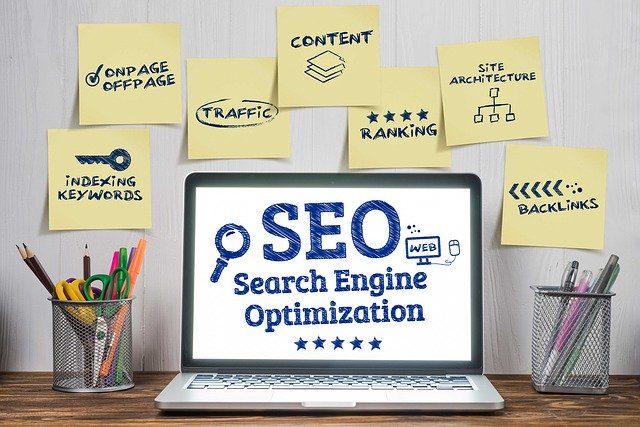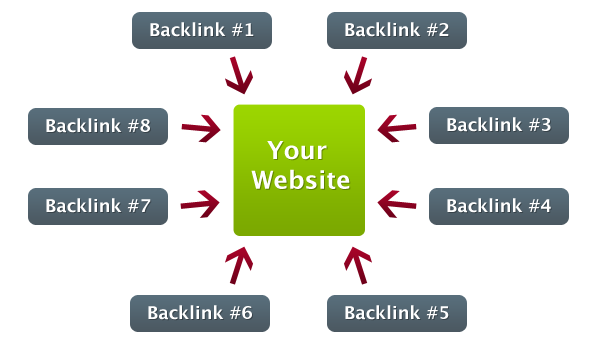S o what is Search Engine Optimisation (SEO)?
o what is Search Engine Optimisation (SEO)?
All modern day businesses rely on a website to support their business. Here we are going to cover some SEO for small business owners. For most businesses it is critical to supporting customers information needs and driving sales. The search engines (mainly Google) are responsible for driving organic (not paid) search results to websites. As such it is critical that business owners have at least a basic understanding of how the search engines rank their websites and drive traffic to their websites. This article will provide a brief overview of search engine optimisation basics for business users who want to understand the basics, but have limited time to devote to the topic. The final section will list some resources you can use to help navigate the topic and start on the road to building a strategy to drive organic traffic.
Don’t Try to Game the System
Its all too tempting to try some of the ‘drive traffic quick’ schemes and attempt to ‘game the system’ and trick the search engines into driving traffic to your site and improving your rankings. The search engines are getting smarter by the day and its only a matter of time before it stops working, and your website gets penalised! The search engines have one main goal, when people do a search to direct them to the most relevant results. So in theory search engine optimisation is simple, make your website relevant. Don’t try to ‘game the system’ but build your website into something people will find useful by providing credible, high quality and useful content.
Keywords
The search engines scan you website with automated bots that check a number of things, one of which is keywords. What are keywords? Keywords describe what the content on the page is about. As such keywords are important for the search engines to deliver relevant results to the users.
In the old days of the internet (5+ years ago) unscrupulous web masters would stuff the web-pages with the keywords that they wanted to show up on the SERP (Search Engine Results Pages). This keywords stuffing would often be hidden from the user but visible to the bots that scan the page. However, now the search engines are smart. They can spot unethical tactics like this from a mile away. Even today some SEO people will rattle of keyword ratios and suggest writing content with precisely placed keywords of a certain amount. However, just providing relevant content that mentions the keyword a few times is fine.
No-one (except those working for them) know what really goes on in the background of the search engines. What we do know, as already mentioned, is that they want to deliver the most relevant results. So it is a good idea to know what keywords you want to rank for and to target your content for these keywords, but don’t sacrifice writing good content so you can satisfy arbitrary keyword ratios.
Short Tail and Long Tail Keywords
Keywords come in a few varieties. Short tail keywords are broad, high volume and high competition, for example “web design Sydney” or “app development”. Long tail keywords are more specific and targeted, for example “web development for small businesses in Sydney” or ‘“iOS app developer Australia”. The theory goes that the high volume keywords have too much competition so you are better targeting long-tail keywords with your content as they have less competition and are more attainable. I suggest a combination of the two. The short-tail keywords are valuable to indicate the general topic or relevance of your website and the long-tail keywords can be used to drive some traffic to the site by appearing high in the SERP’s. Over time as more traffic is coming to your site less long tail keywords can be used and more of an emphasis put on short tail keywords.
Backlinks

Even if your new to SEO you will probably have come across the term ‘backlinks’. Backlinks are essentially just links that point to your website or content. Years ago there was a term bandied about called ‘link juice’. This term meant the power, or ‘juice’, that a link gave your website. The more popular and credible the website linking to yours the better the ‘juice’. The concept behind this is still sound. A link from a credible website, one that is popular and relevant, is worth many non-credible links (sometimes thousands).
If you haven’t already you should take advantage of the Google Search Console, a free tool that lets you see the links to your site. Back-links from popular websites that are relevant to your business are gold! You, as the business owner, should put a high value on these and devote time each week in obtaining them.
Some sources of backlinks include:
- Blog posts submitted to other sites.
- Relevant industry bodies.
- Groups and associations.
- Social media.
Follow vs. No-Follow links
The nofollow attribute is an HTML attribute used to instruct search engines bots that backlink should not influence the target’s ranking in the search engine’s index. When another site links to your website but adds the no-follow attribute the link will function like normal but none of the strength normally passed (link juice) will be applied, as only humans can follow the link (no bots). While no-follow links are still useful the main objective is to get follow links.
Blog Posts
Blog posts are, and have been for a long time, a great source of SEO authority and links. They give you the ability to demonstrate your industry knowledge and drive relevant traffic to your site. Some businesses write their own content and others outsource it. Both are valid depending on your business situation. However, as a business owner it is critical that you are aware of the quality of the content and have a keyword strategy.
Blog Post Frequency
The frequency of the posts depends on your ability and objectives. A well intentioned weekly blog post that never quite makes it is worse than a published monthly blog post. The key is consistency whether its monthly, fortnightly or weekly. Time should be scheduled in advance to create a blog post strategy and either sit down and write or pay for quality content.
Blog Post Length
The ideal length of the content is disputable. A rough guide would be between 600 and 2000 words. A high quality 600 word article is worth more than a 2000 word piece of trash. Bought content is usually sold per word so a good compromise would be around 1000 words. Again, if writing shorter posts means they get published more frequently then do that.
Website Optimisation
Google, and the other Search Engines, are using more and more factors to rank sites. This improves the accuracy of their results, and the complexity of the algorithms. How your site displays on mobile, desktop and how fast it is are increasingly important. As such Google have two great tools Test My Site and PageSpeed Tools freely available to test your website. They offer similar results with Test My Site being the newer of the two with a fancy interface but PageSpeed Tools offering more detailed actionable recommendations.
If your website is an older site on cheap hosting you may be surprised how badly it ranks on these tools. If you are technical you can work through the list of recommendations until you receive a good score (95+) otherwise you will need to find a developer to make the changes for you. Platforms like WordPress have a number of plugins that can help with the optimisation process like Autoptimize for WordPress.
Website Penalisation
If you have hired cheap SEO’s in the past they may have used strategies that worked at the time to boost the site in the SERP’s but Google cracked onto the strategies and has since penalised sites using them. Is My Website Penalized and Website Penalty Indicator are good resources to see if you have been penalised. You can also disavow backlinks from the Google Search Console. This can take time but is worth it in the end. Having no backlinks is better than bad backlinks.
SEO Tools
Free Keyword Tools
Optimisation Tools
Penalisation Checking Tools
Blog Content Sources
Free General SEO Tools
Paid General SEO Tools
Summary of SEO Basics for Business
This post serves as a brief introduction the SEO basics for small business owners and to the world of search engine optimisation and how it relates to your business. It should function as a building block for further research, and in time a comprehensive online strategy. As your building your website, and web presence, try to think like the search engines too. In addition focus on user experience and building an authoritative brand. Don’t look for shortcuts and quick fixes that could hurt you in the long run. Lastly, remember that an SEO strategy is a long term commitment and boosting your ranking will take months or years. If you need help with search engine optimization, digital marketing plans or WordPress development please contact us. We are the best web developers in Sydney.










